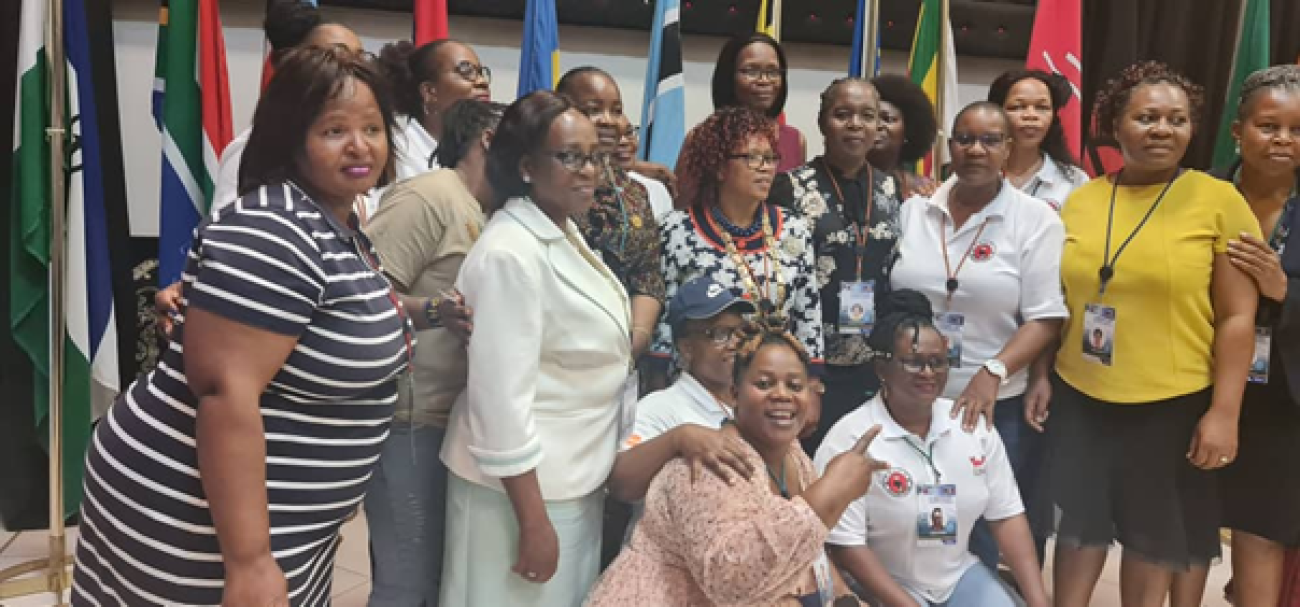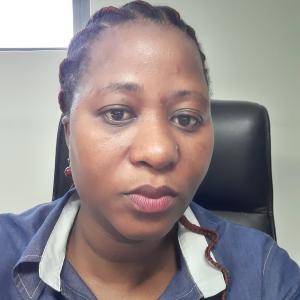Dr Msibi was elected during the 7th Quadrennial General Assembly held in Manzini, Eswatini on 17 September 2022. The general assembly started with the amended of the constitution the previous day and proceeded to the election of a new committee on the next day, which saw Dr Msibi triumphing. She replaces Ms Keoagetse Kgwabi from Botswana. Other members who formed the Executive Committee are Eveline Maziku (Tanzania) who was elected Deputy President, Dr Patricia Mukwato (Zambia) who was elected Chairperson Research, Nancy Kamisi (Rwanda) who was elected Chairperson Clinical, Umzuka M Providence (Kenya) who was elected Chairperson Leadership and Management and Mr. Tebogo Glan Tshenyeno (Botswana) who was elected Chairperson Education.
Speaking soon after the elections, Dr Msibi thanked the ECSACON members for having entrusted her with the new task and promised that the Kingdom of Eswatini would live up to the challenge. ECSACON has for the past 32 years contributed to building capacity in nursing education, nursing regulation and practice. The organization has contributed to a number of studies conducted including the State of the World Nursing report, World Midwifery report to name a few.
Ministry of Health Eswatini Deputy Director – Clinical Dr Velephi Okello has revealed that among all health care workers in Eswatini, Nurses were the ones mostly hard hit by the COVID-19 pandemic.
Dr Okello said this during the 15th Biennial Conference hosted by the East, Central and Southern African College of Nursing (ECSACON) in Manzini which commenced on 13th September 2022. Almost 1, 000 nurses and midwives from 16 countries from the East, Central and Southern Africa participated in the conference to deliberate on issues affecting the profession, changes in regulations and developments as well as to share experiences as they conduct their work. Dr Okello commended the courage and passion demonstrated by nurses in the COVID-19 response despite the dangers they were facing of being infected with the virus.
“Nurses have been at the forefront of the COVID response,” she said mentioning that Nurses did not only care For COVID patients but also participated in surveillance (case finding) activities, information dissemination through mass media and face to face interactions. The Kingdom of Eswatini established kiosks at the Neighbourhood care points and other community centres to provide COVID testing services which were manned by Nurses. Further, a COVID academy was established which cultivated a group of nurses who became trainers and shared information with their colleagues.
Dr Okello mentioned that Nurses also led the vaccination programme which was later provided. As a result, at the beginning of September 2022, vaccination stood at 34. 3% of the total population of just over one million Emaswati. About 70% of those who took up vaccination were people over 40 years of age. Dr Okello mentioned that there was still a struggle when it comes to convincing young people to vaccinate, however, she mentioned that there are programmes in place to ensure that young people seek vaccination for COVID.
She further commended nurses for their commitment despite the challenges they faced. A study conducted by Dr Haumba and others on how COVID impacted health workers showed that Nurses were at high risk of contracting COVID -19 due to lack of isolation facilities within the health centres and lack of PPE among others.
Dr Okello mentioned that despite these challenges, Nurses still showed resilience and quick adaptation to the situation. She stated that lessons learnt from the COVID response showed that Nurses got fatigued and hence the need for wellness programmes.






